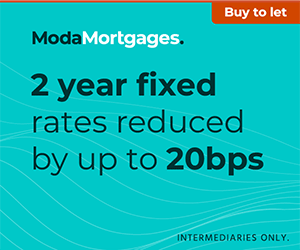In the lead up to Leave/Remain EU Referendum how many times will we hear the The Clash’s seminal, ‘Should I Stay or Should I Go?’, or for that matter Will Young’s ‘Leave Right Now’, or Sam Smith’s ‘Stay With Me’. TV producers and researchers are no doubt, as we speak, trawling through the archives to find the musical pieces that will accompany the huge number of EU-related VTs that we are all going to be shown in the coming months.
While they face their own problems, what about the dilemma faced by Joe Public, and I count myself amongst them, who feel slightly uneasy about voting on an issue about which there seems little independent evidence to help make a decision? To my mind, politicians are probably not the best individuals to be coming forward with various claims, which are quickly contradicted by the other side, and therefore provide little comfort to those who should be able to rely on something more than gut feeling when making their decision.
There has already been a huge furore about the claims and counter-claims issued by each side, and yet it is the public (stuck in the middle) who have to try and make sense of all of this. In terms of financial services it appears (and this is just a general view) that most will be supporting a Remain vote because of the uncertainty that Leave would generate. While this may be the right course, what we don’t actually know is how the process of extricating the UK from the EU would actually impact on our sector. Who can we actually turn to, to provide us with this insight?
Well, already the Bank of England appears to be ramping up its own ‘worst case scenarios’ for a UK voted out of the EU. Just last month, it suggested such a vote could bring about another ‘credit crunch’-esque event, with the potential for a run on sterling and the suggestion that interest rates for mortgage borrowers could also increase significantly – a point George Osborne has reiterated lately.
It too predicated much of this on the near-term ‘uncertainty’ a Leave vote would generate and I suspect the Bank’s views on this matter were met with considerable glee by the Remain campaign because, quite frankly, after a slow recovery since 2007/8/9 the last thing most of the UK would want is another ‘credit crunch’/recession. Certainly, anyone working within the UK mortgage and financial services market would feel a significant shudder of fear about any thought of returning to these days, given the long slow road we have all had to travel since then.
Understandably the Leave campaign has taken a rather different view suggesting the biggest risk the UK faces is actually staying in a growing political union which impacts areas such as trade but also immigration – it suggests that voting Leave would actually strengthen the UK both economically and politically however when it’s arguing against the Bank of England – and the Treasury which has suggested UK households would be £4,300 worse off were we to leave – one wonders how credible its arguments will be seen to be.
In all of this debate I can’t help yearning for an ‘independent’ source, along the lines of the Institute of Fiscal Studies, which has the resource, skills and experience to crunch the numbers and the claims, and provide a credible view on what each option would actually mean and how we genuinely would be impacted by either. Perhaps though, in this debate, it’s actually wishful thinking because this is so far-reaching that every single business, institution, think tank, individual is going to be affected and therefore they may all have their own self-interest at heart when pronouncing on the vote.
One thing is certain though, and that’s the amount of airtime dominance the lead-up to the 23 June vote is going to take. Unfortunately, during this period clarity and independent statistics and thought could well be in short supply, which leaves the decision the UK public have to make all the more complicated. Politicians, who are hardly viewed as the most trustworthy of individuals at the best of times, may make plenty of pronouncements but how much stock will they actually hold? Can we believe them? If not, who can we believe? In a very real sense, as Johnny Nash once sang, ‘There are more questions than answers, and the more I find out, the less I know’.
Richard Adams is managing director of Stonebridge Group






